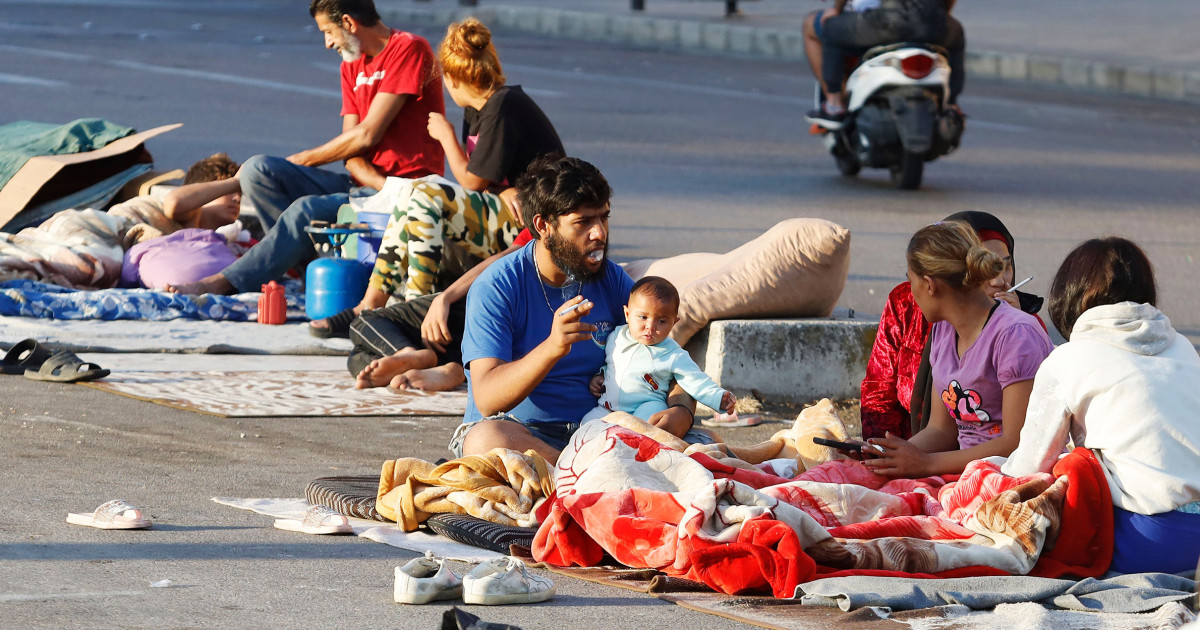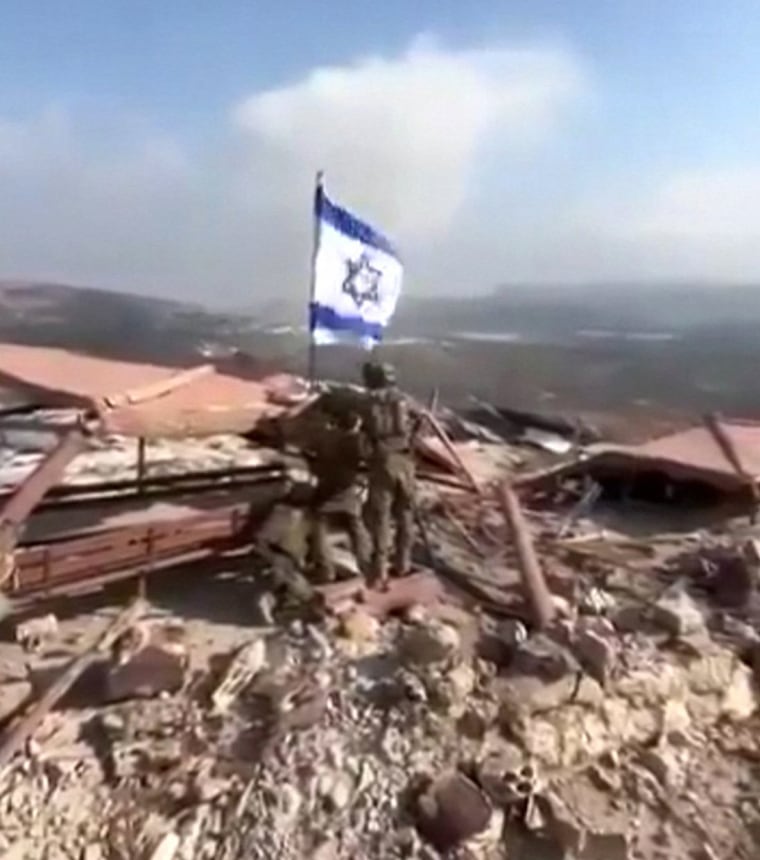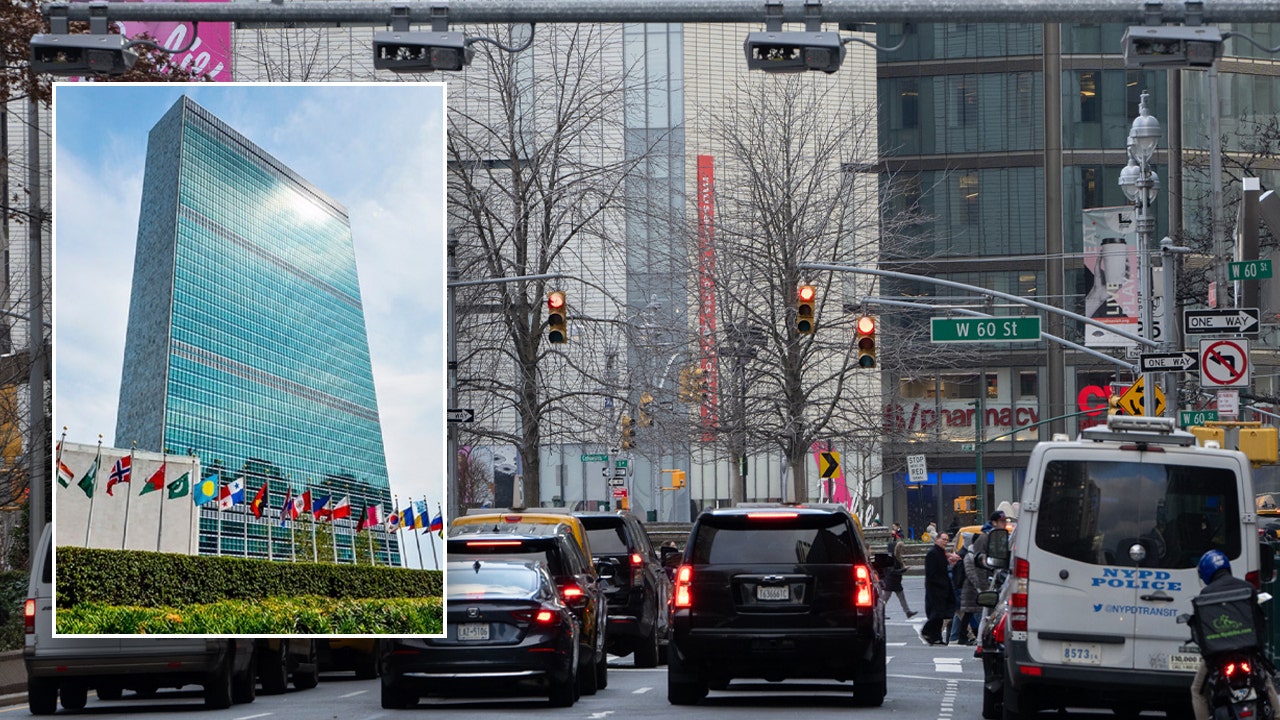World
Destruction like Gaza or civil war? Netanyahu’s warning adds to questions over Israel’s goals in Lebanon

New divisions sent to join an expanding ground invasion, troops raising a flag outside a border village and an unmistakable warning to Lebanese civilians: Israel is sending increasingly mixed signals about the goals of a military operation it had insisted was limited.
Concerns over the country’s plans were mounting Wednesday after Israeli Prime Minister Benjamin Netanyahu suggested that Lebanese people either rise up against Hezbollah or face destruction like the Gaza Strip.
For many observers, this amounted to a choice between civil war or the same fate as that of Palestinians in the besieged and bombarded enclave.
“You have an opportunity to save Lebanon before it falls into the abyss of a long war that will lead to destruction and suffering like we see in Gaza,” Netanyahu said in a video address Tuesday delivered in English. “It doesn’t have to be that way,” he said.
His comments came as Israel expanded its invasion into southwestern Lebanon, deploying a fourth division of troops to battle Hezbollah as the military ordered evacuations well beyond a United Nations-declared buffer zone.
This had already raised questions about Israel’s stated objectives in its neighbor’s territory.
Israel has said that what it calls a “limited, localized, targeted” operation against Hezbollah is necessary to ensure the safe return and security of the thousands of people who have been displaced from their homes in northern Israel, after the Iran-backed militant and political group began firing across the border a year ago in solidarity with Hamas and Palestinians in Gaza.
Israeli officials have suggested this would involve Hezbollah retreating north of the Litani River, as outlined in U.N. Security Council Resolution 1701, which laid out the terms for a cease-fire in the 2006 war but has not been fully implemented.
Is that still the case?
Fawaz Gerges, a professor of international relations at the London School of Economics, told NBC News that he believed many were missing the broader picture of the “underlying thinking and plotting by Netanyahu and his war Cabinet.”
Netanyahu, he said in a phone interview Wednesday, appeared to be “trying to incite the Lebanese population against Hezbollah” using rhetoric that will “pour gasoline on a raging fire.”
Hezbollah is not just a militant group with thousands of fighters and a powerful arsenal, but also a political organization embedded throughout the institutions of a deeply divided country. To rise up against it would likely mean an armed struggle.
“This is a recipe really for civil strife and civil war,” Gerges said.
Netanyahu’s warning “was a direct threat,” Yossi Mekelberg, a senior consulting fellow with Chatham House’s Middle East and North Africa Programme, said in a phone interview Wednesday morning.
Noting the rising death toll in Gaza, where more than 42,000 people have now been killed, according to the local Health Ministry, Mekelberg said Netanyahu had intimated that thousands more people could be killed in Lebanon. More than 2,000 people have been killed and more than 1.2 million displaced in the country in the past year, according to Lebanese officials.
Mekelberg said Netanyahu’s comments should “really lead the international community to jump and say, ‘This is completely unacceptable’.”
“Look at the pictures of Gaza, the images coming out of Gaza,” he said.

Images have also begun to convey the destruction wrought in Lebanon — from nightly airstrikes on Beirut to the aerial and ground assault in the south. And Wednesday, a video, geolocated by NBC News, stoked outrage: Israeli soldiers raising the country’s flag on the outskirts of a border village.
Lebanese people who spoke to NBC News on Wednesday bristled at Netanyahu’s warning, with some also mocking the footage of Israeli soldiers planting the flag in the southern village of Maroun Al-Ras.
“I laughed when I heard about Netanyahu’s threats,” said Hisham Karameh, a salesperson at a local clothing store. “This is not the first time.”
“Israel invaded Lebanon many times,” Karameh, 28, said. Israel’s invasion of Lebanon amid its 1982 civil war resulted in a nearly two-decade occupation of the country’s south.
“They already did destroy the south and Dahieh,” he said, referring to the Beirut suburb and Hezbollah stronghold that has been bombarded for weeks. “Too late now to send more threats. We trust him on that issue.”
Karameh also dismissed video on social media showing Israeli forces planting a flag in southern Lebanon as “a joke.”
“They crossed the border for a few meters, raised their flag, took a picture and withdrew,” he said. “Please don’t insult our intelligence.”
The State Department said Israeli soldiers raising a flag in southern Lebanon was “obviously inappropriate.”
“We would look to them to comply with what they have said, which these are limited incursions, not with the goal of holding territory,” spokesperson Matthew Miller told reporters Tuesday night.








